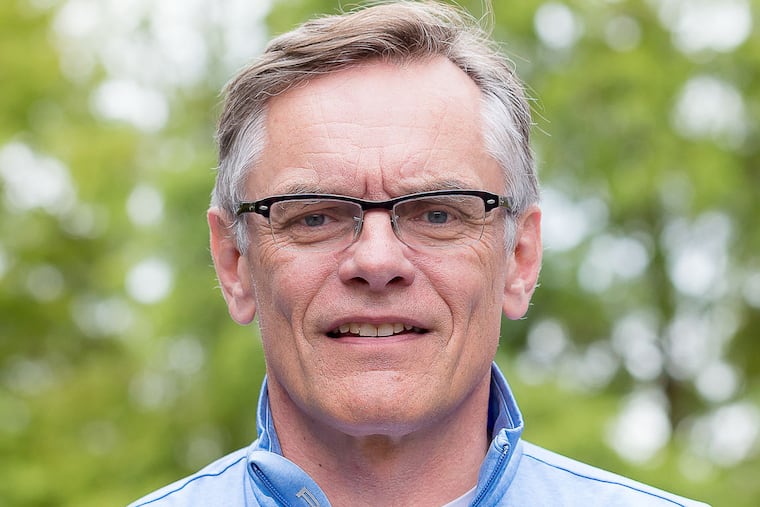Gene therapy heats Passage Bio IPO; new Hatch Fund; rivals join BrokerTech; FS spins AIX; PCI buys, may sell
Passage Bio goes over target to raise $216 million; PA Bio's $25M Hatch Fund; Graham, rival Conner Strong join BrokerTech; FS spins off AIX; PCI buys Bellwyck

The stock market may be collapsing, but a made-in-Philadelphia initial public stock offering shows biotech is still red-hot on Wall Street.
Philadelphia-based Passage Bio raised $216 million, up to $90 million more than projected in its own Securities and Exchange Commission filings last month, as investment banks bought 12 million shares at $18 each late Thursday. Trading on the Nasdaq stock market Passage Bio shares opened at $22.27 Friday, in another sign of investor optimism, with more than three million shares changing hands in its first hour.
Shares closed Friday at $22.40.
This shows how gene and cell therapy start-ups remain a focus of investor interest, even as the S&P 500 big-stock average has fallen about 12% since Feb. 19. Underwriters led by JPMorgan Securities and Goldman Sachs bought 12 million shares — four million more than the company’s previous projections — at the top of the company’s own expected price range.
Passage Bio employs around 20. The company focuses on cures for rare genetic nervous system diseases. It had pledged to spend the sale proceeds on clinical trials for three therapies in development, with additional funds for research and “candidate selection."
The shares of cofounder James Wilson, a Penn gene therapy leader, are worth around $40 million at the sale price.
Passage Bio is the latest in a string of U.S. and Philadelphia-area biotech companies that have gone public before making any profits — or even taking any products to market — in the hot market defying global fears about slowing trade.
December’s sale of Philadelphia-based Spark Therapeutics to Swiss drug giant Roche for $4.3 billion has inspired biotech investors.
Recent area biotech IPOs include Malvern-based Tela Bio Inc., which raised $52 million last month; Malvern-based radiation-sickness therapy developer Galera Therapeutics, which raised $60 million in its IPO last fall; T-cell immunotherapy developer Cabaletta Bio of Philadelphia, which raised $75 million in its IPO earlier last year; and PhaseBio Pharmaceuticals Inc., of Malvern, a heart-drug developer that raised $46 million in a 2018 IPO.
Cell and gene therapy true believers say this wave is different from previous biotech bubbles: Most of the newly-public companies have technologies that can be quickly proven or disproven and taken to market, compared with the long and uncertain development cycle for traditional drugs, says Cabaletta chief executive Steve Nichtberger.
The rapid investment pace has also spawned new players.
Biotech cash: The nonprofit Pennsylvania Biotech Center in Doylestown says it is raising $25 million for its new Hatch Biofund Management LLC to invest in firms at its Doylestown biotech-companies incubator, and at the proposed Unite IQ incubator at an ex-GlaxoSmithKline office redevelopment in Lower Merion Township, which developer Brian O’Neill calls Discovery Labs.
Besides cash, the Hatch project includes start-up assistance from Silicon Valley law firm William Sonsini; manufacturing help from West Pharmaceutical Services, Exton, and Alcami, of South Carolina; Citibank; and Zer0 to 5ive, the Berwyn marketing firm.
Brokertech co-op: They are rivals for corporate and institutional insurance brokerage, but Philadelphia’s staff-owned Graham Company and South Jersey rival George E. Norcross III’s Conner Strong & Buckelew are among nine big U.S. brokers who have joined forces to back BrokerTech Ventures, “the first broker-led investor group and accelerator program" — which is funding a dozen insurance-focused tech startups, many based in the Midwest, says Michael McIntire, Graham’s chief technology officer.
Graham built a pioneer client analytics platform, GrahamAlytics, in the mid-2010s. In 2018 “we began a strategic planning initiative” with adviser MorganFranklin Consulting of McLean, Va., says Graham vice chair Mike Mitchell. “Amazon and FedEx can tell you where your package is over the phone. The big banks have online banking. But insurance brokerage has been underserved.” BrokerTech is building solutions.
Fintech spin-off: Fund manager FS Investments, owned by Philadelphia lawyer Michael Forman and his partners, which employs around 270 at its Navy Yard headquarters, and will manage $26 billion in other people’s money when its pending Chiron Investment Management acquisition closes, says it is spinning off its Alternative Investment Exchange (AIX) unit as a separate, 25-person company, headed by Joseph Ujobai, who joined AIX from SEI Investments in Oaks last November. Former FS chief information officer Brad West is COO.
The trade-speeding tech unit was started to serve FS’s own funds, but has expanded to add seven outside firms as well, and plans to grow, says FS’s Michael Gerber.
Pharmatech buy and sell: PCI Pharma Services, Philadelphia, has bought Toronto-based Bellwyck Pharma Services, which does packaging and labeling for pharma sales and clinical trials, chief executive Salim Haffar said in a statement. The deal adds four facilities in the United States, Germany and Canada to PCI’s network of 21 U.S, European and Asian sites. Combined, the companies employ 3,700, including 675 in the Philadelphia area.
PCI is owned by investors Partner Group, Thomas H. Lee Partners, and Frazier Healthcare Partners. But the Wall Street Journal reported last month that they are hoping to cash out, and seek a buyout firm that will pay $2.5 billion for PCI.